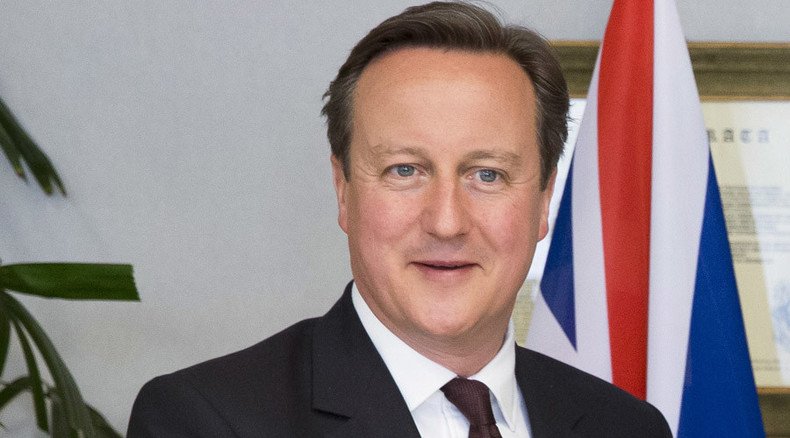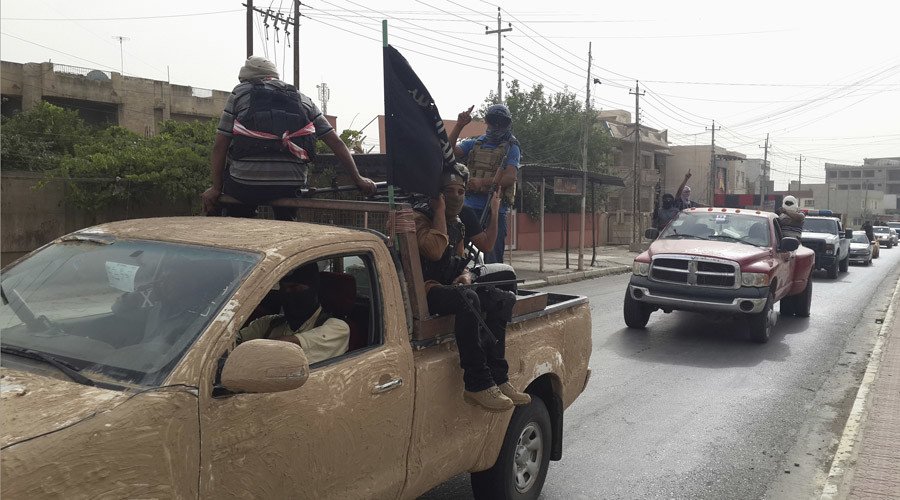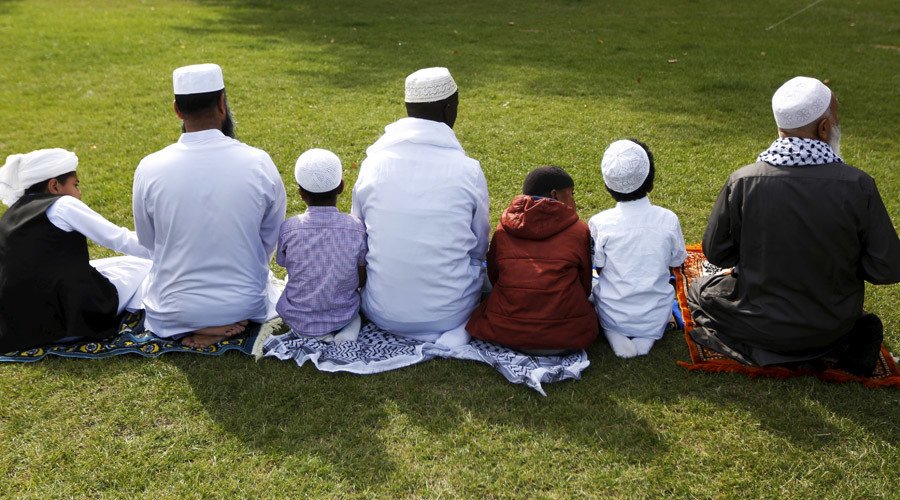Cameron’s extremism speech ‘targets and criminalizes entire Muslim community’

There are a number of inconsistencies in David Cameron’s speech on combating extremism and he basically broadened the fishing net on who will now be considered an extremist, says Dilly Hussain, deputy editor of British Muslim news website 5 Pillars.
UK Prime Minister David Cameron has revealed his government’s long-term strategy for tackling extremism and the radicalization of Britons. He said the root cause of extremism was "ideology" and pledged to build bridges between the government and disenfranchised communities. According to this plan UK parents might have the right to take away their children’s' passports - to prevent them from joining terrorist groups like Islamic State.
On social media, people have already dissected Cameron's speech and some of the reaction has been quite harsh. Some allege that Cameron links the UK's whole Muslim community to terrorism. The plan received mixed reaction from Muslim leaders who called it “confusing, contradictory and over-simplified.”
Also it’s been revealed that UK pilots have participated in bombing raids in Syria despite a parliamentary prohibition to do so.
READ MORE: Cameron unveils crackdown on ‘anti-British’ Muslims
RT: Some observers have called David Cameron's speech the creepiest and most authoritarian one he's ever delivered. What sort of reactions are you seeing from the country's Muslim community?
Dilly Hussain: Indeed, it was most definitely a landmark speech. However it appeared that he was merely regurgitating and rehashed a similar speech that was delivered by Tony Blair nine years ago when he was talking about elements of Islam being an evil ideology. And what David Cameron went on to say was that it was just not good enough to condemn IS. We have to now go on, and now anyone with any kind of worldview that was influenced by religion would fall under this category of being an extremist. So in effect what David Cameron has actually done with his speech was that he broadened the fishing net on who will now be considered an extremist. There was a lot of rhetoric there which is highly problematic. He was talking about enforcing British values, but at the same time he was talking about British values being open to all. Yet these are the very same British values which are selectively applied, regularly transgressed by the government themselves. So there are a number of inconsistencies in David Cameron’s speech today [on Monday] and generally speaking I personally felt - and I know many Muslim organizations feel the same - like he was targeting and criminalizing an entire community.

RT: David Cameron apparently wants to tackle the “failures of integration”. What do you think about it?
DH: Muslims have been here for decades and they have integrated fantastically. We’ve got Muslims in the health care sector, in the legal sector, in the public and the private sector. They go to university, they go to school, they have more Muslim neighbors. I think we have integrated quite well, but what’s actually happening here is an imposed attempt to force Muslims to assimilate to a set of secular values which I’m sure numerous white or Muslim Britons would have a problem with. That’s the problem here; Muslims have been here for decades. We have integrated well into society, whether it’s academia or the working professional industry. But the problem here is that Mr. Cameron, along with his neo-conservative think-tanks, are peddling his polices. They would like a forced assimilation of British Muslims to basically become subservient and passive to all their foreign policy antics and the draconian anti-terror policies which have been non-stop over the last five to six years.
READ MORE: Cameron wants UK ‘to do more’ to fight ISIS in Syria
RT: David Cameron said young Britons could be attracted to Islamic State because it offers them a sense of belonging which they lack at home. How did the UK come to this - when a terrorist group can seemingly offer more than the British government?
DH: Let’s not look at symptoms; let’s look at the root cause. President Obama recently in an interview with Vice News said that IS was a result of the US-led invasion. So this is an admission from President Obama, who basically said that as a result of us invading another sovereign country, many who would argue is an illegal war, that created the vacuum in which IS emerged. We have to appreciate that while Mr. Cameron focuses on ideology, ideology is most definitely a contributing factor it’s not a sole factor. We have to look at psychological instability, socio-economic factors, harassment in security services – all this things going together will then lead to someone adopting a fringe of extreme elements of a particular ideology. All Mr. Cameron, and other neocon hawks within the ranks, is focusing on is ideology specifically, and this would be incorrect. Its’ been academically refuted and it cannot be substantiated.
UK secret bombing of Syria – ‘contempt for people, parliament and democracy’
Bombing Syria without parliamentary approval is not surprising given the track record of the British government, but completely unacceptable and UK society should do everything to prevent such things happening, says Anti-war activist Chris Nineham.
RT: David Cameron says Britain's foreign conflicts aren't helping to fuel terrorism. Do you agree? Even one of the murders of soldier Lee Rigby killed on the streets of London two years ago said he was motivated by Britain's bombing of Muslims abroad?
Chris Nineham: I think it’s interesting that he spent so much of his speech trying to counter the idea that there is some sort of connection between foreign policy and terrorist attacks, and this is a big part of the kind of government’s ideological offensive’ really. They are trying to suggest that any attempt at understanding cause or consequence or history in this whole issue is tantamount to justifying terrorism, which is a very sinister approach to be honest. All the evidence shows in fact that there is a very close correlation between a growing and increasingly aggressive foreign policy and the kind of bitterness and anger around the world that has led to atrocious and terrifying terrorist attacks. These are just facts and if you ignore them you don’t have any handle on what’s really going on and that’s very dangerous.
READ MORE: Secretly bombing Syria ‘undermines trust’ say MPs
RT: Is it any surprise British MPs are furious over being kept in the dark about the bombing of Islamic State in Syria by British pilots without parliament's approval?
CN: I don’t think it’s a surprise at all and they are right to be angry because it’s an absolute outrage. I remember David Cameron saying back in 2013 that he ‘gets that’ parliament opposed the bombing of Syria and the people opposed the bombing of Syria and yet he then goes ahead and authorizes it. It’s complete contempt for the people, for parliament, for democracy in this country. In one sense I’m not massively surprised given the track record of the government, but still it’s completely unacceptable obviously and we need to make sure that we do everything possible to make it very difficult for the government to so this kind of thing.

RT: What should be done then?
CN: There should be a vote on a motion in parliament to condemn what the government has done over Syria, but I suppose in a way the most important thing upcoming is that the government wants to bring back to the table the whole question of an intensified bombing campaign over Syria, and I think what both the anti-war parliamentarians and the wider movements needs to do is to win the argument decisively that such an escalation would be a disaster, and would lead to more bloodshed and intensification of the cycle of violence in Syria and that’s where we really need to go now. I don’t think it will have done him any good that he completely ignored the wishes of parliament. It may make our argument slightly easier but I think that’s what we have to do. We stopped him, or at least we massively limited his ambitions back in 2013. We’ve got to so the same again.
RT: The UK's Defense Secretary has brushed off the Syria bombing scandal, saying that British forces were simply "embedded" with the American-led mission there. What's to stop Downing Street from using this same excuse in the future?
CN: That’s exactly what they are going to argue. It’s true a lot has changed and they are now arguing “We should fight on the opposite side to the one they wanted us to fight in back in 2013.” And although by and large they didn’t get involved in a massive military operation or offensive operation, they did arm the opposition; they did have diplomatic relations and all sorts of connections with the opposition and encouraged the opposition. And it’s precisely that opposition which is now led essentially by jihadi groups that we are now being asked to counter. So the madness of British foreign policy is plainly there for all to see, and what we have to get across is the kind of craziness of what is on offer here is the deeply counterproductive nature of the whole project of believing that through aerial bombardment or occupation, boots on the ground, for that matter, that we can make things better for the people in the Middle East. All the evidence of the last fourteen years has proved decisively over and over again that it’s not possible, and what we’ve seen since the beginning of the so-called ‘war on terror’ is a massive increase and massive proliferation in the amount of terrorist activity. It’s now spread out from Central Asia across the Middle East, North, Central, East Africa. It’s been even in its own terms an absolute catastrophe and there is absolutely no reason to believe this particular project would have any other outcome.
The statements, views and opinions expressed in this column are solely those of the author and do not necessarily represent those of RT.
The statements, views and opinions expressed in this column are solely those of the author and do not necessarily represent those of RT.












